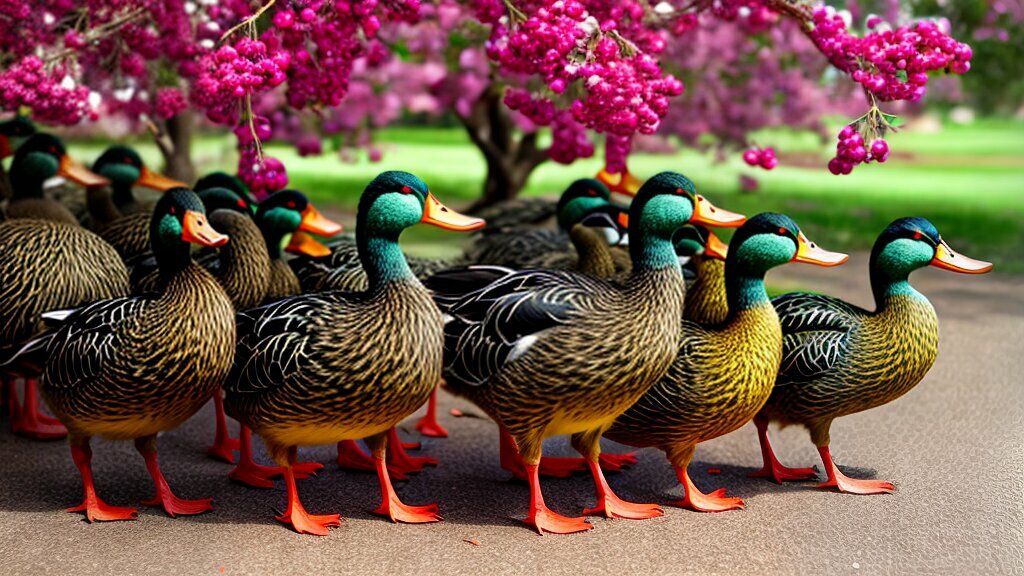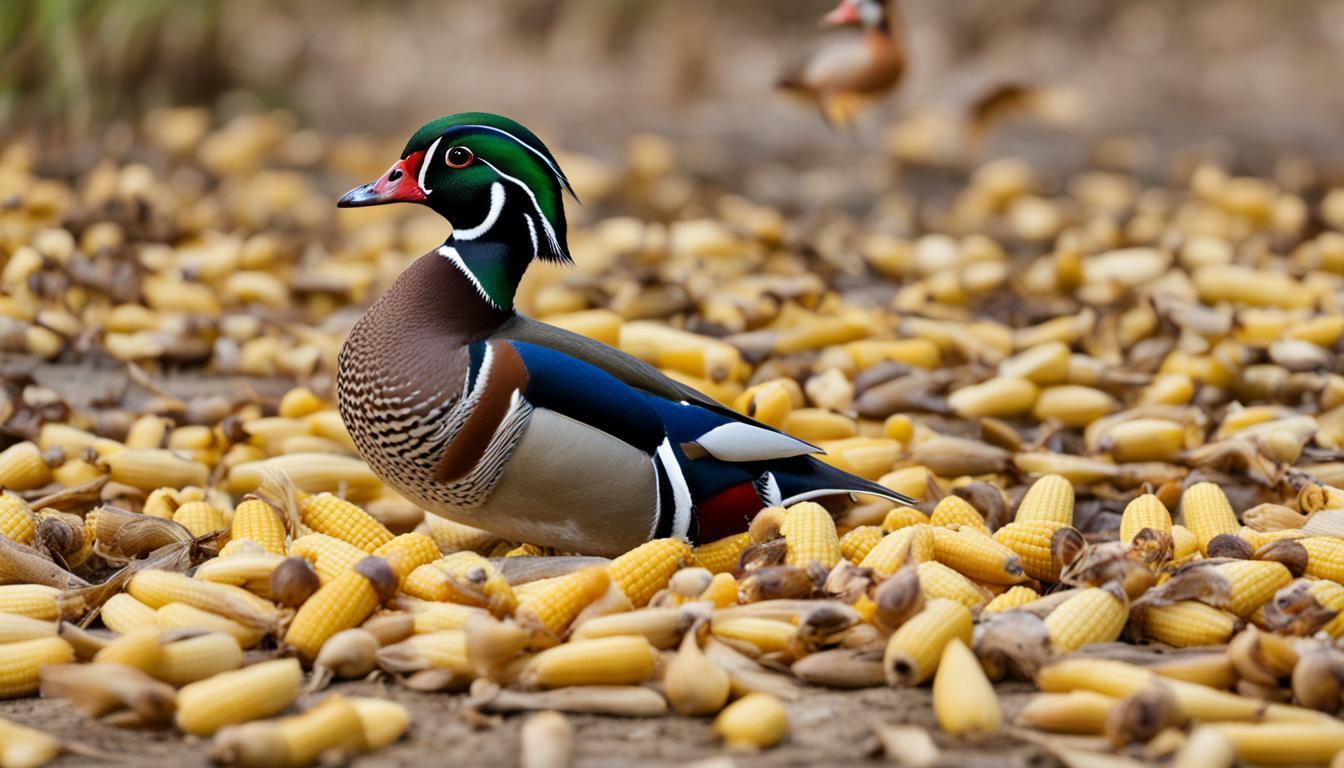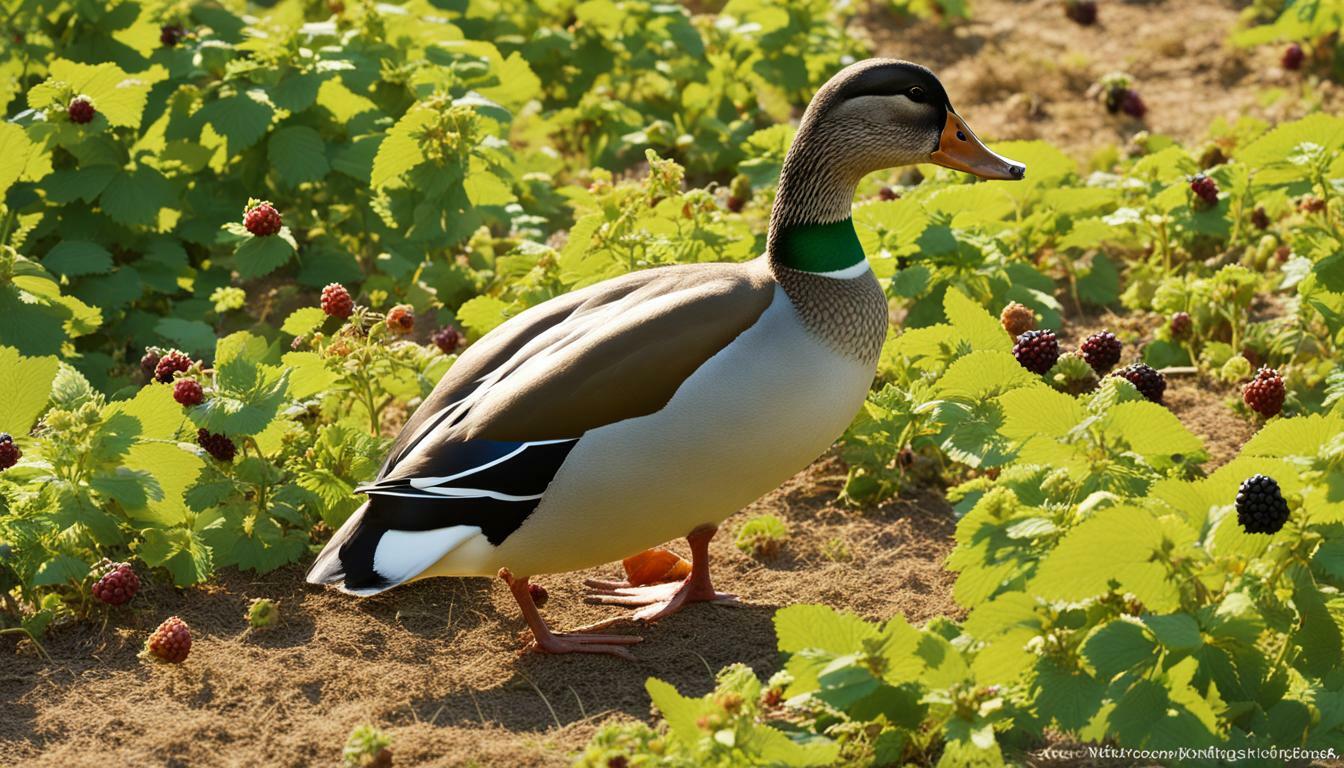Can Ducks Eat Mulberries?

Table of content:
Mulberries are a sweet, tasty fruit that humans enjoy snacking on, but can our feathered friends also eat them? Specifically, can ducks eat mulberries as part of their diet?
The short answer is yes, ducks can safely consume mulberries. Mulberries contain beneficial nutrients and vitamins that make them a healthy treat. However, as with any new food, mulberries should be fed to ducks in moderation to avoid potential digestive issues.
An Overview of Mulberries
Before exploring if ducks can eat them, let’s first look at what exactly mulberries are.
Mulberries are a type of berry fruit that grows on trees. There are 3 main types:
- White mulberries
- Red mulberries
- Black mulberries
They are native to Asia but also grow in North America. The berries ripen to a deep purple or black color during the summer months.
Mulberries have a sweet, yet mildly tart flavor. They taste a bit like a cross between blackberries and figs. The texture is soft, almost juicy, and the berries make a satisfying natural snack.
When it comes to nutrition, mulberries contain lots of good-for-you vitamins and minerals:
- Vitamin C – Important for immune health and wound healing.
- Iron – Helps carry oxygen through the blood.
- Fiber – Aids digestion and gut health.
- Potassium – Key for fluid balance and muscle/nerve signaling.
- Antioxidants – Help defend against cell damage from free radicals.
In addition to vitamins, mulberries also provide carbohydrates in the form of natural sugars. All of these nutrients make them a very healthy, energizing food for humans.
Can Ducks Safely Eat Mulberries?
Now that we know what mulberries are, let’s explore can ducks eat them as part of their diet.
The answer is yes, absolutely! Mulberries are non-toxic to ducks and are perfectly safe for them to consume. Wild ducks are often seen foraging for and eating fallen mulberries in areas where they grow.
Here are some key reasons why mulberries are good for ducks:
Mulberries Provide Key Nutrients
Mulberries contain lots of nutrients, like vitamin C, that are beneficial for a duck’s health. Vitamin C in particular supports immune function and helps with wound recovery if a duck gets injured.
The iron in mulberries helps ducks produce healthy red blood cells to transport oxygen. Potassium is key for a duck’s fluid balance and nerve function.
Fiber aids a duck’s digestion while the antioxidants protect ducks against cell damage from free radicals they’re exposed to in the wild.
So the nutritional profile of mulberries makes them an excellent supplemental food.
Good Source of Natural Carbs
In the wild, ducks spend much of their time foraging for food. This requires a lot of energy.
Mulberries offer ducks easily digestible carbs in the form of natural sugars. This gives ducks an energy boost and fuel for all their daily activities like swimming, flying, and walking.
Soft, Juicy Texture
A major bonus of mulberries is their soft, almost juicy texture. This makes them very easy for ducks to chew and digest.
Compared to foods like seeds or pellets that require more effort to break down, mulberries practically melt in a duck’s mouth. This makes them easily consumable by ducks of all ages.
Foraging Enrichment
Allowing ducks to forage for fallen mulberries mimics their natural behavior in the wild. This provides them with mental stimulation and enrichment.
Rather than just being fed, ducks can use their instincts to search for and find the mulberries spread out in their environment. This is good for thwell-beingll well-being.
So in summary, the nutritional value, digestibility, and foraging benefits make mulberries a smart supplemental food choice for backyard ducks.
Potential Downsides of Feeding Ducks Mulberries
For the most part, mulberries are a healthy treat for ducks. Hocouple, thof are a couple potential downsides to be aware of:
Can Cause Loose Droppings if Overeaten
Since they are high in natural sugars, mulberries can cause temporary digestive upset if ducks eat too many. Their stool may become loose or diarrhea-like.
To avoid this, feed mulberries in moderation as part of a balanced diet. Don’t offer unlimited quantities.
Can Attract Other Wildlife
Mulberry trees naturally drop berries on the ground when ripe. This can draw in other wildlife besides ducks, like squirrels, deer, and bears.
If you have ducks but also issues with intruding wildlife, fallen mulberries may make the problem worse. So weigh the pros and cons.
Pesticide Exposure Risk
Conventionally grown mulberries may be treated with pesticides and herbicides during growth. If ingested, these chemicals can be harmful to duck health.
Whenever possible, always try to feed ducks mulberries from organic, pesticide-free sources. Thoroughly rinse store-bought mulberries as well.
So be sensible when offering mulberries to ducks. Moderation is key, and sourcing them from organic sources when possible reduces risks.
Best Practices for Feeding Ducks Mulberries
If you want to share some harvests with backyard ducks, follow these tips:
Mash or Chop Them Up
Depending on their age, whole mulberries may be a choking hazard for baby ducklings. For young ducks, be sure to mash or finely chop the berries before feeding.
Rinse Off Pesticides
Give store-bought mulberries a good rinse under clean running water. This will wash away any residual pesticides on the surface.
Mix with Other Foods
Rather than a whole bowlful of mulberries, mix a handful in with their regular food like layer pellets. This gives a balanced diet.
Control Portions
Don’t let ducks overindulge in mulberries. Limit treat amounts to a handful per duck so they don’t get digestive upset.
Remove Uneaten Berries
Pick up any uneaten mulberries within an hour so they don’t rot or attract pests. Ducks tend to forage selectively.
Monitor Their Droppings
Observe ducks’ droppings after introducing mulberries. Watery, loose poop could signal they need smaller portions.
By following these tips, you can safely integrate mulberries into your backyard flock’s diet. Just exercise moderation and good judgment.
Summary
Can ducks eat mulberries? In summary, yes!
Mulberries are a nutritious fruit that provides vitamins, minerals, antioxidants, and natural carbohydrates. Their soft texture makes them easily digestible. When fed responsibly, mulberries make a healthy supplemental treat.
Wild ducks will naturally forage on fallen mulberries. Backyard duck owners can mimic this by offering a handful of rinsed mulberries as part of a balanced diet. Monitor portion sizes to avoid digestive issues.
So feel free to share a few ripe mulberries! Both you and your feathered friends will enjoy this tasty summer fruit. Just be smart and limit treatment amounts to keep your ducks happy and healthy.
Welcome. I’m Adreena Shanum, the proud owner of this website, and I am incredibly passionate about animals, especially poultry. I founded adreenapets.com as a labor of love, stemming from my desire to share my knowledge and experiences with poultry enthusiasts worldwide.




